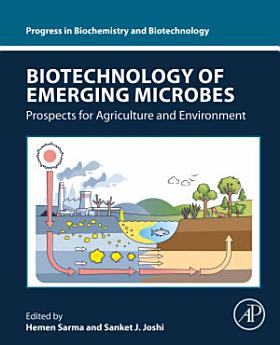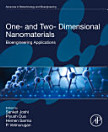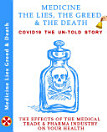Biotechnology of Emerging Microbes: Prospects for Agriculture and Environment
About this ebook
About the author
Dr. Hemen Sarma is an Associate Professor in the Department of Botany at Bodoland University, India, whose multidisciplinary research spans plant sciences, environmental sustainability, nanobiotechnology, and agriculture. His work advances understanding of plant-environment interactions and sustainable agricultural practices, focusing on emerging pollutants, plant-microbe interactions, and biochar technology. Recognized internationally, Dr. Sarma was elected a Fellow of the Linnean Society of London and received the UNESCO-TWAS award for science popularization in the Global South. He is also acknowledged among the top 2% of most cited authors worldwide. His academic career spans over two decades, including a PhD in Botany with specialization in plant and environmental pollution from Gauhati University, India, and postdoctoral fellowships at institutions such as the University of Texas at El Paso, USA.
Dr. Sanket Joshi is currently a Professor at the Amity Institute of Microbial Technology, Amity University, Rajasthan, India. He has academic teaching and research experience of about 16 years, and industrial R&D experience of about 4 years in India and Oman. While working in Indian pharma companies, he undertook several turnkey projects. His current research interests encompass energy (In-situ/ex-situ microbial enhanced light/heavy oil recovery; chemical enhanced oil Recovery; biofuels), microbial products (biosurfactants, biopolymers, R&D and scale-up), and environmental bioremediation (crude oil pollution; analysis, mitigation and control of souring by Sulfate reducing bacteria; HPAM contaminated sites). He has about 125 scientific publications in international journals, book chapters, and conference proceedings, and two books to his credit. He is an Academic/Associate Editor for: Frontiers in Microbiology, PeerJ, Ecotoxicology (Springer), Petroleum Science and Technology (Springer), Biotech (Springer), and Open Biotechnology Journal; guest editor for Frontiers in Microbiology, Sustainability, Scientifica, and Open Biotechnology Journal.






